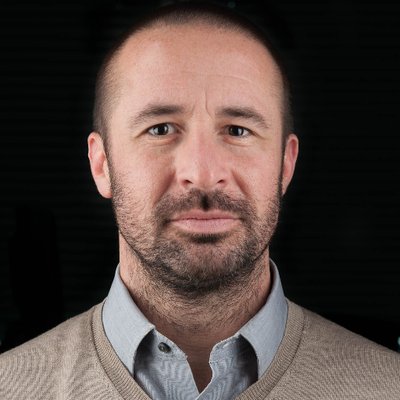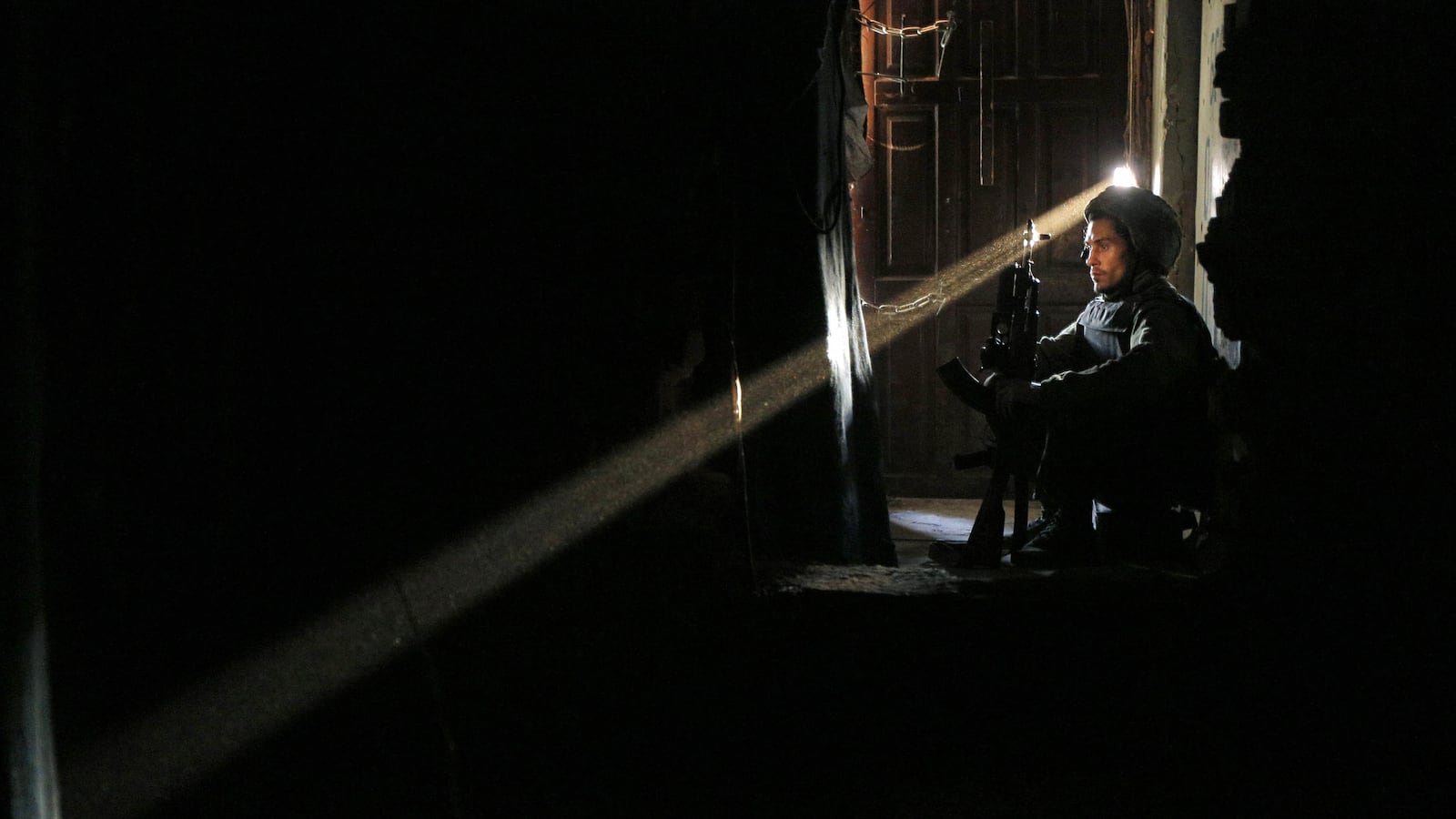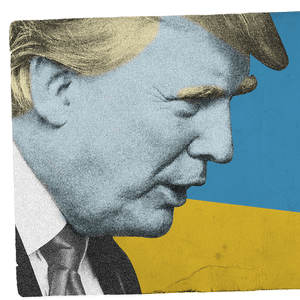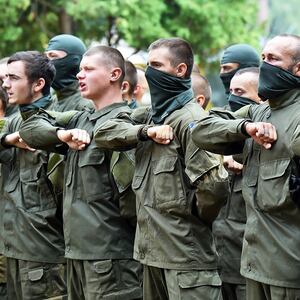Amid the tumult surrounding impeachment proceedings against U.S. President Donald J. Trump, which center on his actions with regard to Ukraine, an unnoticed headline is what’s happening to Ukraine’s own President Volodymyr Zelensky. He’s seen an abrupt 20 percent plunge in his approval rating. But Trump is only one of his problems, and far from the most significant. Resentment is growing among many patriotic and civically minded citizens about what they view as peace on Russian terms after almost six years of war over the Ukraine-Russia border region of Donbas.
And in this case, perception really is everything. Even elements of America’s foreign policy establishment are worried: “Western partners might hand control of Ukraine to Putin under the guise of a ‘special status’ for Russian-occupied Donbas,” as Michael Carpenter at the Penn Biden Center for Diplomacy wrote last week. “Under the pretense of diplomatic progress, such a deal could prove deadly to Ukraine’s sovereign statehood.”
Nevertheless, leaders of Ukraine, Russia, France, and Germany will reconvene on Monday what’s called the Normandy Four heads of state negotiating format to resolve the Donbas conflict. Talks have been stalled since 2016, when Ukraine under previous leadership—and supported by the United States—rejected an element of this peace process known as the Steinmeier formula.
Since Zelensky’s April election, Ukraine has met all of Russia’s preconditions for this meeting, but the Russians haven’t reciprocated. Ukrainian soldiers continue to die nearly every day, and Russia retains control over the disputed border. Hence, proud veterans and nationalists equate this entire peace process, known as the Minsk agreements, with surrender. As they have ever since 2014-15, when Russia coerced Ukraine to sign Minsk from a position of strategic weakness, defeat, and vulnerability.
Yet over the last few months, more progress has been made toward peace than in almost six years of war. Prisoners have been swapped and ceasefire observers verify initial disengagement of forces in three trial zones.
Zelensky was elected in a landslide to end this war–but not on all terms, say nationalist activists who have already twice ousted regimes they accuse of treason and betraying Ukraine to Russia: the 2004-05 Orange Revolution and 2013-14 Euro-Maidan uprising. Today’s new protests are called “No Surrender.” Peace is a good thing, they say, but not if it also means conceding the same pro-Russian separatist demands that started the war in the first place.
This No Surrender movement has built on the vestiges of Zelensky predecessor Petro Poroshenko’s bloc, close allies of the West who were wiped out in the 2019 elections by Zelensky’s 73 percent presidential win and near supermajority in Ukraine’s parliament. These sore losers are now back in the streets to denounce Ukraine’s October 1 signing of the Steinmeier formula as the "Putin formula.”
This is important because these patriotic forces ruled Ukraine for the last five years and benefited from Western train-and-assist programs. Now in opposition, some threaten Zelensky with what essentially amounts to a right-wing coup. Parties representing activist remnants of Poroshenko’s government have made three core demands ahead of Normandy: no federalization, an unaltered course toward closer ties with NATO and the European Union, and the de-occupation and return of Crimea - the strategic peninsula held by Russia and annexed by Moscow when the conflict began in early 2014.
Readings of the Minsk agreement vary from workable to catastrophic depending on how the conflict is framed: Russian invasion and assault on Ukrainian sovereignty; or grassroots civil war against the 2014 ouster of democratically elected yet disgraced ex-president Viktor Yanukovych. Protesters in a dozen cities have condemned the Steinmeier formula; eight regional and city councils, too. Resistance to benign interpretations of it could drive the country into a third revolution. And any Western support for that would be swiftly recast as anti-democratic because of Zelensky’s huge voter mandate.
Other unrest sharpens the situation: Zelensky is also launching a toxic land reform at IMF behest that will allow sale to foreign investors; Yanukovych cronies are persecuting political enemies; exiles are returning to reclaim the proceeds of corruption lost to rival oligarch/president Poroshenko during his term; and Nord Stream 2 will strip Ukraine of revenue from Russian gas transit. Underground paramilitary nationalists have waited years for such a confluence of misfortunes to exploit.
In a recent joint interview with Time, Der Spiegel, Le Monde, and Gazeta Wyborcza, Zelensky was asked if Ukraine would ever regain control of its Donbas border with Russia. The new president answered that he disagrees with how Minsk resolved this issue, and Ukrainians generally want restored border control first–and only then, elections: “Unfortunately, we have a contradiction there. ... According to Minsk, elections come first; then control over the border.”
Another blurry, unmet Ukrainian precondition for peace is full withdrawal of all illegal gunmen, as Zelensky described Russian-led separatists in the same interview. But he offered a caveat that can also be understood to address Ukrainian militias, some of which have attracted neo-Nazis. Zelensky tacitly called for them to disarm too: “Complete withdrawal of all illegal military units–of any kind, uniform, or weapon.”
This is an olive branch both to Russians brainwashed by state media about Ukrainian fascists, and any Ukrainians who have been alienated from their state by unanswered questions about such groups’ role in the last revolution and five years of bad governance that led to Zelensky’s blowout of the ancien régime.
In the interview, Zelensky again denied any quid pro quo to release U.S. military aid in exchange for an official public statement that former Vice President Joe Biden engaged in corruption in Ukraine: “I didn’t talk to Trump in this way... I don’t want us to act like beggars. We are at war and our strategic U.S. partner shouldn’t be an obstacle. It’s about fairness; not quid pro quo.”
Impeachment also encourages the world to associate Ukraine with corruption, which is neither a fair nor accurate rendering of daily life for most common folks, but is certainly music to Russian ears. In Zelensky’s interview, he said, “Everyone hears that signal: investors, banks, stakeholders, American and European companies that have international capital in Ukraine. It’s a signal to them that says ‘Be careful; don’t invest!’ Or ‘Get out of there.’ It’s not that corruption doesn’t exist; it does–but all branches of government were corrupted over many years and we are working hard to clean it up.”
German president Frank-Walter Steinmeier was foreign minister in 2016 when he introduced his formula to build confidence and good faith for direct negotiations with separatists. The U.S. and Ukraine rejected it because it sequences local elections and special status before restoration of the border. Zelensky made a dramatic reversal by signing it. Protesters say the special status at its heart is what’s wrong with Minsk. Separatists brag it’s their victory, fostering perceptions of a double standard privileging rebel Donbas over Ukraine’s 24 remaining, loyal regions.
The next annual vote on special status is imminent at the end of 2019. Parliament has provisionally approved it every year since the war began, yet it’s always fraught with tension: during a 2015 riot against the second vote, a radical from the far-right Svoboda party’s Sich volunteer battalion killed four members of Ukraine’s National Guard with a grenade. The perpetrator was jailed but became an icon to Ukraine’s new right, who lionize him as a “defender of the constitution.
Nationalists think Minsk rewards attempted secession with increased sovereignty–they didn’t fight a war against Russia for all these years just to let Donbas become the next Crimea. Assuming first that safe, free, and fair local elections can even be held under Ukrainian law and then certified by OSCE observers, subsequent special status as written in the Minsk agreements and Steinmeier formula would grant insurgents their original demands: Russian language gains, autonomy such as Crimea had before it was carved off, amnesty, and a local police independent of national law enforcement–perhaps even formed from rebel groups.
It is a deal so bad that the U.S. diplomat sent to resolve Ukraine’s crisis, former special representative Kurt Volker, said in 2015 before he took his position that Minsk would lead to the country’s partition. He only changed his tune when implementing that bad peace became his job two years later. On October 1, four days after Volker resigned and 20 days after Trump released military aid, Ukraine signed the Steinmeier formula. Then protests in major cities erupted.
Hundreds of Ukrainians have told me over the past four years that the country can’t implement Minsk–nationalists won’t accept Ukraine’s political obligations, nor will national revolutionaries tolerate democratic processes that rehabilitate politicians sympathetic to Russia.
In 2017, far-right Azov movement leader and then-MP Andriy Biletskiy said “Minsk means Ukraine’s federalization and collapse.” In 2015 on the floor of parliament, he threatened to overthrow the government. His mentor, ex-chairman of parliament and social-nationalist founder Andriy Parubiy, calls Minsk an attempt to dismantle the state. He led both of Ukraine’s prior revolutions.
After Ukraine signed Steinmeier, shells kept falling–and when Zelensky met with Azov at one of three frontline disengagement zones to ask them to withdraw, they at first defied him. Ukraine’s general staff subsequently sided with the president. What happens next will have lasting consequences for democracy and the rule of law in Ukraine.
To Zelensky’s credit, he seems to have internalized the risk to his rule that patriotic groups pose, already conceding that Ukraine’s new draft law on special status will not include amnesty or take effect before separatists disarm, withdraw, and restore the border to Kyiv. He also told civic, veteran, nationalist, and far-right groups that they will all be consulted on the new law. Zelensky also publicly reassured them that, “Elections will not be held at gunpoint…There will be no capitulation.”
Assuming Russia doesn’t really invade, Zelensky’s sober approach seems to be working–so far, the only reaction has been big, angry parades because initial disengagement in the three trial areas has been no big deal: Ukraine withdrew only 42 troops from Petrivske; 50 from Zolote; and 56 from Stanytsya Luhanska. Both sides fell back one kilometer, to create two-kilometer demilitarized zones.
But Ukrainians who led the Maidan Revolution of Dignity and Donbas Anti-Terrorist Operation will not end it by granting the demands of separatists dating back to 2014. Zelensky said so himself: “Poroshenko is against withdrawal and thinks he can spearhead another Maidan.”
By signing Steinmeier in its unchanged form just to get the Normandy meeting–without first restoring control of Ukraine’s border, or reaching a full ceasefire and withdrawal–Zelensky is crossing red lines that Western-backed civil society threatens will incite a third Maidan.
Zelensky criticized this maximalism in his interview with leading Western outlets:
“I know there are a lot of hotheads at rallies saying ‘Let’s go fight and win back Donbas!’ But at what cost? I won’t do it–and if that doesn’t satisfy society, then a new leader will come to satisfy those demands. But not me–I cannot send troops there. How many will die? Hundreds of thousands–and then an all-out war; both in Ukraine as well as across Europe.”
Zelensky obliterated his opponents on a peace platform and then consolidated further control with a sweep of parliamentary elections too. After those stunning upsets, the unpopular post-Maidan government’s Western backers were right to abandon it. Any extra-parliamentary or sub-state methods now to reignite protests against Zelensky’s new initiatives would be a departure from democratic norms. Unproven suspicions that he is latently pro-Russian don’t rationalize anything.
Street politics fuel Russian propaganda, mischaracterize Ukraine as illiberal or ungovernable, and cast the West as enablers of the far right. What does Russia want in Ukraine? Among other things the chance to say I told you so: chaos and fascists vindicate years of smears against Ukrainian independence.








